Team Report
World Baseball - Spain's Multinational Team - Breakthrough at the 2013 WBC
2/25/2015
![]()
By Hirokazu Yokoo
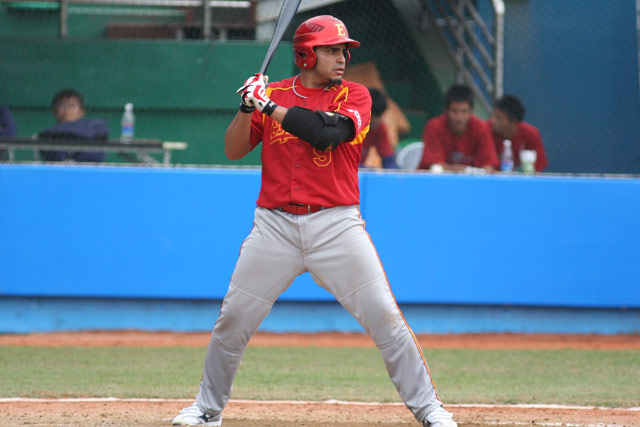
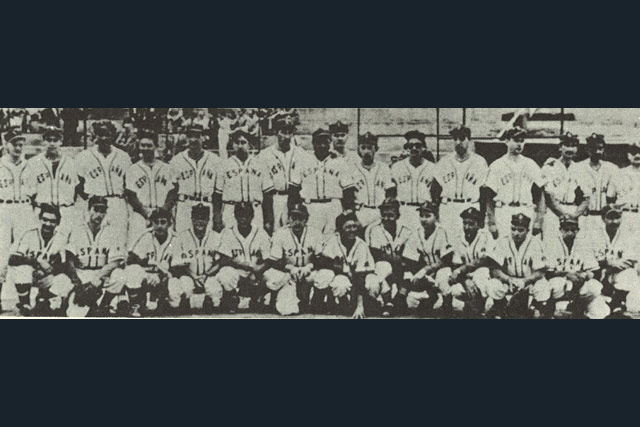
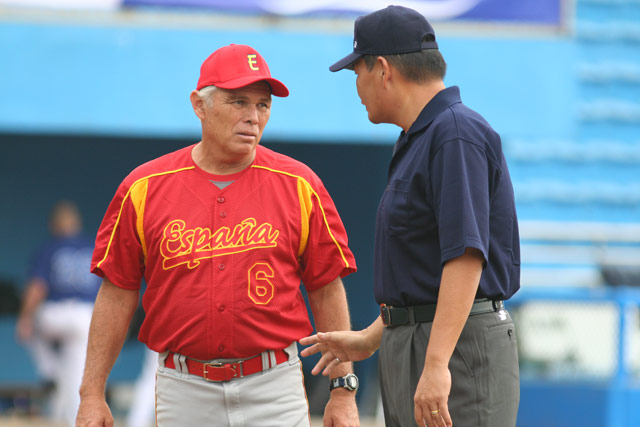
At the 1992 Barcelona Olympics baseball was adopted as an official event and we were lucky enough to get our first look at the Spanish baseball representatives. There were 8 teams and from the Americas it was Cuba, the US, Dominican Republic and Puerto Rico, while from Asia there was Japan and Chinese Taipei. There was a quota for Europe of two teams but, since Spain played as the host nation, there was one spot left and it went to Italy with the Netherlands not being able to appear. I was able to see how Spain played as they were beaten by a wide margin in each game. Even being the host country perhaps they should not have appeared. As expected Spain was 8th and was only able earn one victory in a dramatic game against Puerto Rico where they won in the bottom of the 9th. Looking back, I wonder if this is when Spain became fascinating for me as a country that could cause a stunning upset.
Spain's history of baseball is surprisingly long. There are records of games being played in the major cities of Madrid and Barcelona in 1920. However, the first game appears to have taken place long before that. Americans living in Spain played against a mixed team of Spaniards and Philippine immigrants with the American team winning 11-5. Then, in Madrid in 1927, the Pirates Baseball Club was formed. This is said to be the oldest team. After that teams were founded in each area and on August 13, 1944 the first domestic baseball championship was held in Barcelona at which RCD Espanyol became the first victors. This is considered the first meeting of the Division de Honor, the top league at present. In 1945, the next year, the Spanish Baseball Federation was founded. Its chairman, Luis Barrio, encouraged nearby countries and in 1953 the European Baseball Federation was formed.
Then, in 1954, the 1st European Baseball Championship was held and Spain was the runner up. The next year, 1955, the country was the host of the 2nd championship and crowned this honor by coming in first. However, to the present day this has been Spain's only victory captured at this tournament. In 1978 the number of teams in the Spanish Baseball Federation surpassed 100 (including juniors and students) and the number of players on the roles reached 5000 but the level of competition did not develop remarkably.
Along with baseball being adopted as an Olympic event, Spain began to put effort into strengthening their program little by little. Barcelona, where memories still remained of the Olympics, became the stage for the 13th Intercontinental Cup in 1997. The hosts, Spain, lost all of their games in the elimination round and were completely lifeless. Japan, on the other hand, while struggling in the same round to 3rd place with a 4 win 3 loss record, handed number 2 Australia a 10-5 loss, then defeated Cuba, which had been on a 151 game winning streak in international tournaments, by a giant margin of 11-2. Except for the World Baseball Classic (WBC), however, Japan hasn't had a victory in a world tournament since then. For that reason, the Estadi Olimpic de Montjuic in Viladecans, Barcelona, is a place that holds glorious memories for Japan. Also, starting with this tournament, pros (including retired players) have been allowed to play in international championships and because of this progress in Spanish baseball has accelerated.
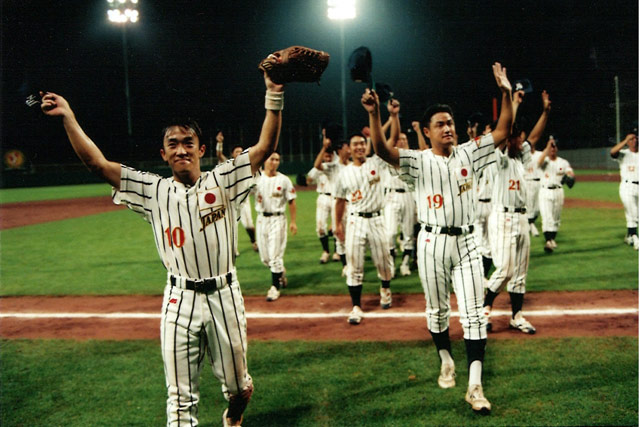
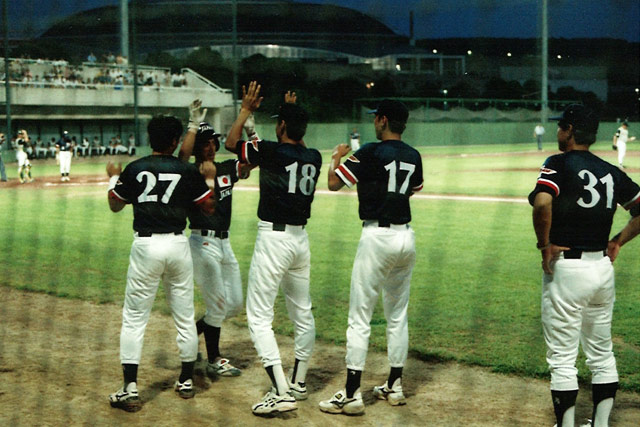
At the 36th IBAF World Cup held in 2005 at various sites in the Netherlands, the Spanish representatives faced the Japanese representatives in the first game of the elimination round for Group A. At the top of the 1st Japan scored a run to take the lead but in the bottom of the 2nd Dewis Navarro stirred up the crowd by hitting a solo home run to even up the score. Navarro is originally from Venezuela but holds dual citizenship and started playing in the Division de Honor in 2004. This player is active with a strong arm and batting that packs a punch. Starting in 2009 he transferred to Italy's Nettuno to play for 2 years and is well known as a catcher representing Europe. In a similar way, other players from the Spanish speaking world such as the Dominican Republic, Venezuela and sometimes refugees from Cuba have come to play for Spain. Depending on the time of year of the international championships, players active under the umbrella of the MLB have also been added to the Spanish team. At the 37th IBAF World Cup which took place in Taiwan in 2007, Spain appeared and was once again in the same group as Japan in the elimination round. Trailing by 2 runs, Spain turned the tables to lead 3-2 until the 7th inning. Japan caught up in the 8th and sent Spain packing in the bottom of the 9th. Merged onto the Spanish team were players like Daniel Figueroa, who at that time was on the Orioles roster as a Class A player, 20 year old left handed Paul Llopis and, also 20 years old, candidate, slugger Daniel Martinez. Spain had high hopes that these players would help to raise the level of the game among youngsters in the country. And actually, at that year's European Baseball Championship the country defeated Italy 6-4 and while they lost to the Netherlands, it was a hard fought 11 inning game that ended with the score 8-10. This team in the midst of growth is led by Manager Jake P. Molina who has a long history of coaching college and university baseball. Because he is painstaking in teaching players how to smoothly switch from defense to offense, he has reduced the pattern of big losses in the final innings where players' concentration tends to fade. In the 2009 38th IBAF World Cup the team's steady progress could be seen in the first round where they fought well but lost to Cuba 4-5 and Puerto Rico 3-5. In the second round, they defeated Venezuela 8-1. Thus they have become a rank and file team which can sometimes deliver spectacular victories.
So for a team like Spain it must have come as big news that, introduced in the 2013 WBC, the teams to appear would be decided by a four team elimination round method. In the first group of the elimination round held in Florida, USA, in September 2012, the four teams entered were South Africa, France, Spain and Israel. Having appeared in the last two tournaments, South Africa was head and shoulders above the other teams in real ability. From the point of view of the sponsors, though, it seems clear that out of this group of teams the one people would like to see step out as a new power was the Israeli representative team, made up of an array of Jewish American minor league players. As expected Israel fought steadily and defeated Spain in their second game 2-4. However, Spain came back in the elimination game between losing countries and faced Israel once again in the final. It was a good game in which each point was contested bitterly and the teams went into an overtime 10th inning with the score 7-7. Spain was able to get two points and earn a spot in the championship. Spain was able to achieve its historic victory with a lineup full of variety that included players like Yasser Gomez, a former Cuban representative that was the lead off batter, and Ricardo S. Hernandez, a left handed Venezuelan who has wandered around Europe. Two of the players who came to Japan recently as European representatives, pitcher Leslie Nacar and catcher Blake Ochoa, were also among those who were part of this exciting experience.
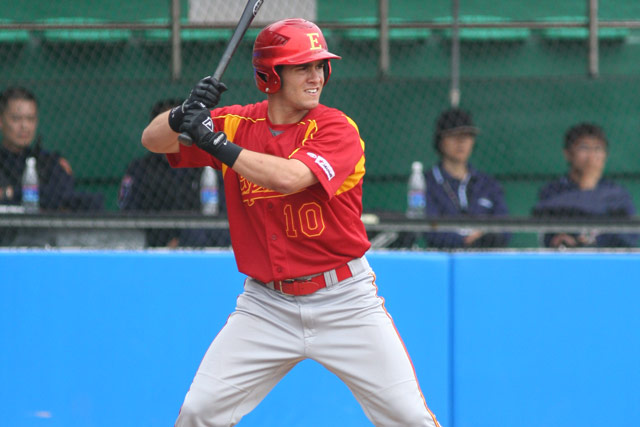
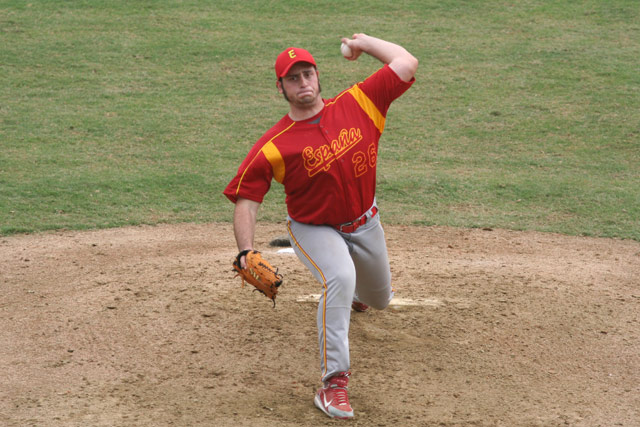
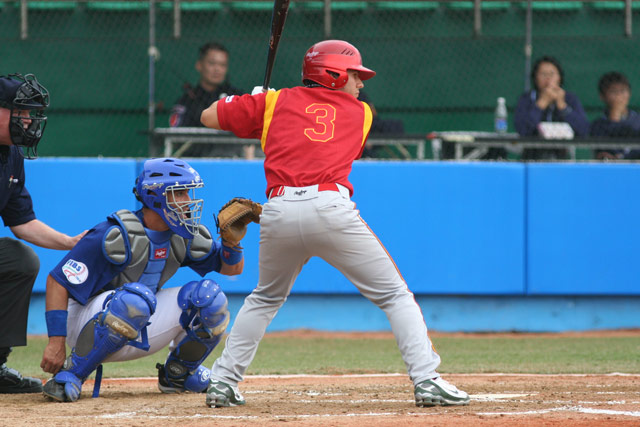
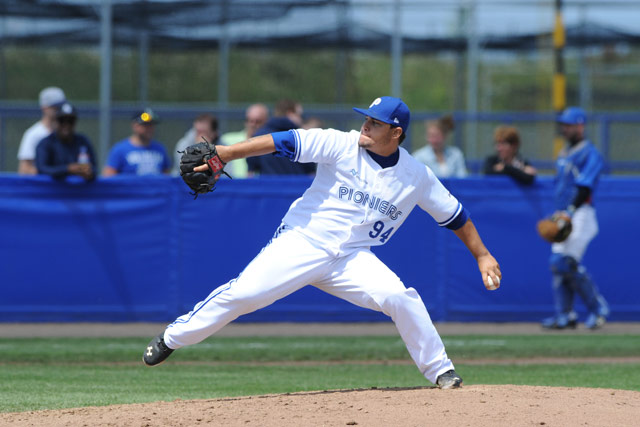
While the Spanish representative team came in 3rd in the European Baseball Championship last year and is overflowing with energy, the domestic league, the Division de Honor, it's safe to say is still in the midst of development. The Tenerife Marlins and CB Barcelona are powerful teams but they don't appear in the European Cup, where club teams face off. Someone involved in the tournament had this to say:
“Barcelona was once run by the illustrious soccer club FC Barcelona but they withdrew and became independently managed and since then is in a difficult financial situation. Also, Tenerife is a team from the Canary Islands, so for them to play away from home is quite difficult. Looking behind the scenes at last year's European Cup, many of the players from the teams that appeared came to the stadiums in the Netherlands and the Czech Republic together in their household cars. Probably the only team that came in a bus was from Italy. That's the real situation for European club teams at the moment but we would really like for Spain to participate.”
Among other events, last year Japanese pitcher Daisuke Ikenaga began to play for CB Barcelona. With the charm of its international character it will be fun to see how Spanish baseball develops.
Latest Article
 |
RAXUS SAMURAI JAPAN SERIES 2025 JAPAN vs KOREA roster announcement 10/8/2025 |
|---|
 |
2nd WBSC Youth Baseball5 World Cup 2025 roster announcement 9/7/2025 |
|---|
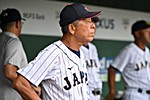 |
WBSC U-18 Baseball World Cup 2025 presented by RAXUS roster announcement 8/23/2025 |
|---|
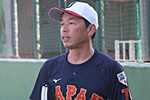 |
31st BFA Asian Championship 2025 roster announcement 8/22/2025 |
|---|
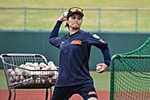 |
4th BFA Women's Baseball Asian Cup roster announcement 7/22/2025 |
|---|
























